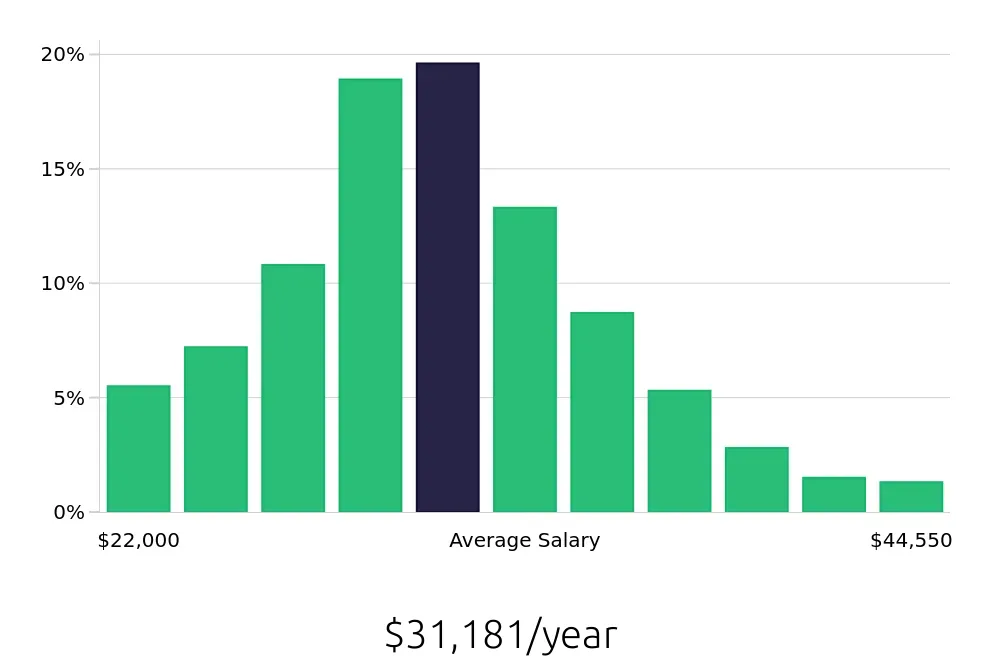Position
Overview
A Dietary Aide plays a crucial role in healthcare settings, focusing on preparing and serving meals to patients, residents, and staff. This position ensures that dietary needs and preferences are met, contributing to overall health and well-being. Daily duties include setting up dining areas, washing dishes, and assisting with meal delivery. They also help maintain cleanliness and organization in the kitchen and dining areas.
Dietary Aides often work closely with dietitians and nutritionists to prepare special meals for those with specific dietary restrictions. This job requires attention to detail and a strong work ethic. Aides must follow safety and hygiene protocols to ensure food quality and safety. They play a vital role in creating a pleasant dining experience, which can positively impact patient morale and recovery.
Becoming a Dietary Aide can be a fulfilling career choice. It plays a key role in ensuring that patients and residents receive proper nutrition. This job requires attention to detail and a caring attitude. Follow these steps to start your career as a Dietary Aide.
First, gaining a high school diploma or GED is essential. This basic educational requirement is the starting point. Most employers look for candidates with at least a high school education. Completing this step prepares individuals for further training and education in dietary care.
The time it takes to become a dietary aide varies based on the path chosen. Most programs can be completed in a few weeks to a few months. Some key steps include:
Typically, a certificate program takes about one to two months to finish. Schools, community colleges, and vocational schools offer these programs. They teach essential skills like food safety and nutrition. After completing a program, candidates often need to pass a certification exam. This process usually adds a few weeks. Some people also opt for on-the-job training. This can take longer, but it offers direct experience in a real setting.
The Dietary Aide will assist in the preparation, serving, and cleaning of food for patients, staff, and visitors in a healthcare facility. This role requires attention to detail, a strong work ethic, and the ability to work in a fast-paced environment.
Responsibilities:
Qualifications
Working as a Dietary Aide offers a rewarding career in the healthcare sector. This role involves helping patients with their meals, ensuring they receive proper nutrition. Aides work in hospitals, schools, and nursing homes. They must follow strict food safety rules and sometimes help with meal planning. This job provides hands-on experience and the chance to make a difference in people's health and well-being.
Every job has its ups and downs. Here are some pros and cons to consider:
The role of a Dietary Aide is fulfilling and offers many opportunities to impact others' lives positively. Weighing the pros and cons will help potential aides decide if this path suits their career goals.
If you are considering a career as a Dietary Aide, the job outlook is promising. According to the Bureau of Labor Statistics (BLS), there are approximately 5,600 job positions available each year. This consistent demand highlights a steady need for qualified individuals in this role. With an expected increase of 6.6% in job openings from 2022 to 2032, the field is on the rise.
For those interested in the financial aspect, Dietary Aides enjoy a competitive salary. The average national annual compensation stands at $71,280, as reported by the BLS. This figure reflects the growing recognition of the critical role Dietary Aides play in healthcare and food service environments. In terms of hourly pay, the average is $34.27, offering a good return for the work involved.
A career as a Dietary Aide offers a blend of steady job opportunities and respectable compensation. With an increasing number of positions and a healthy average salary, this role presents a stable career path. Job seekers can look forward to both job security and fair remuneration in this growing field.
